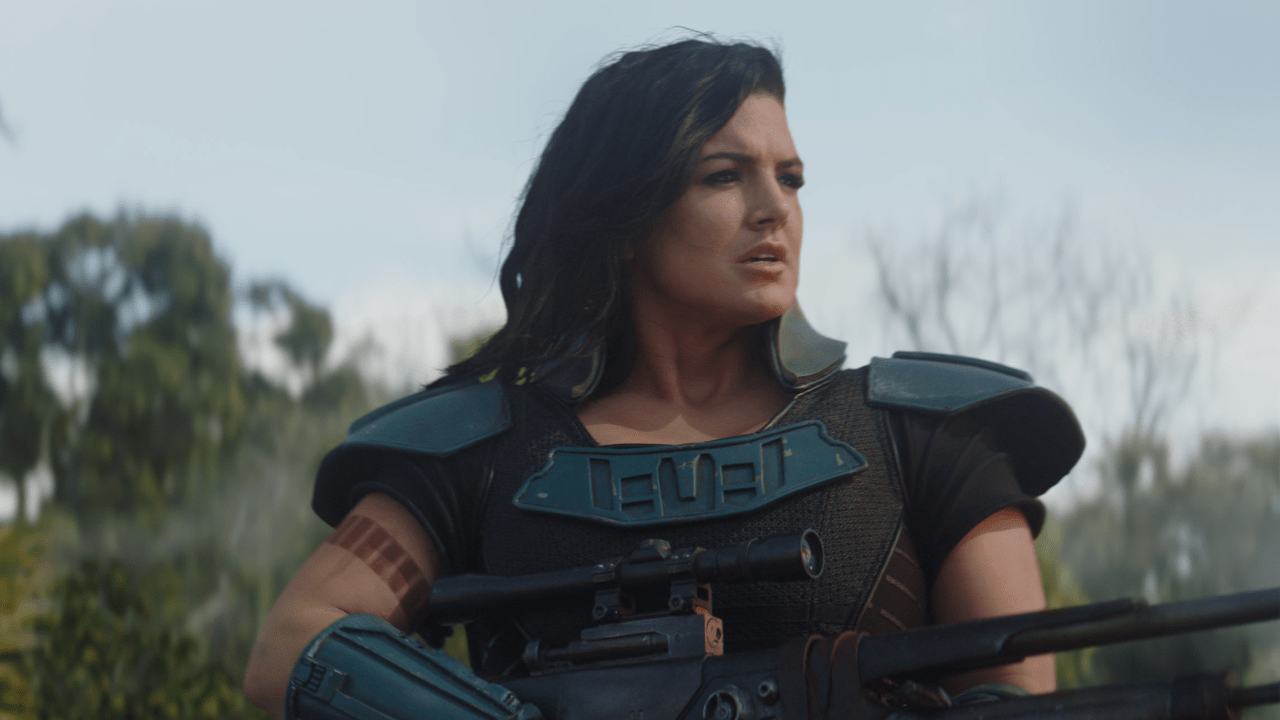
Disney’s reaction to Rachel Zegler’s political social media controversy is significantly different from how they handled the dismissal of Gina Carano.
Disney treated Rachel Zegler differently than Gina Carano after their respective social media controversies.
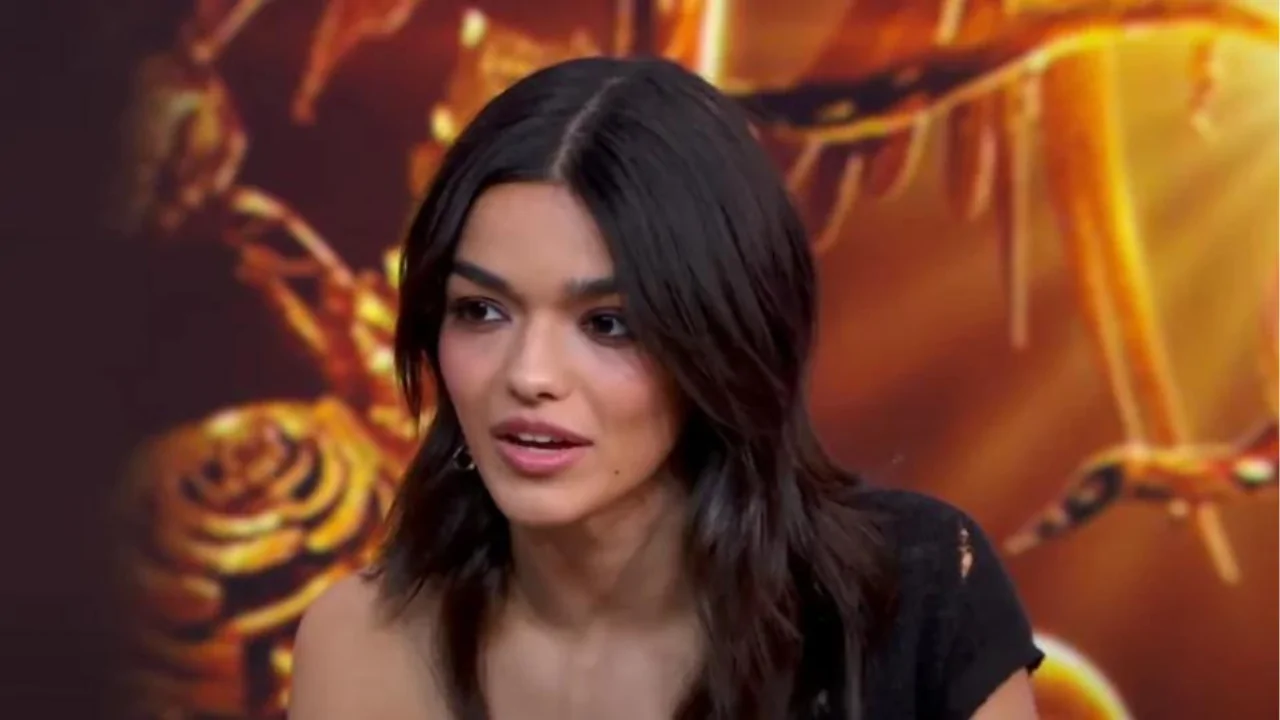
In a fair society, laws are enforced impartially for all. However, in Disney’s realm, what truly counts is the brand’s worth—with almost every other aspect, such as “corporate principles,” being subject to discussion and compromise.
This week, an investigation by Variety uncovered that Disney had assigned Rachel Zegler a “social media advisor” to scrutinize her posts following her sharing of politically charged messages. Some of these messages were critical of Donald Trump, including expressions such as “I hope Trump supporters, Trump voters, and Trump himself never experience peace.
Ponder this situation: An actress who played a leading role in a Disney production worth $270 million publicly expressed hopes for misfortune towards half of the nation. This didn’t happen years ago, but rather during the build-up to the film’s premiere in 2024. And what was Disney’s reaction to this?
Not termination. Not a public reprimand. Not even a real apology.
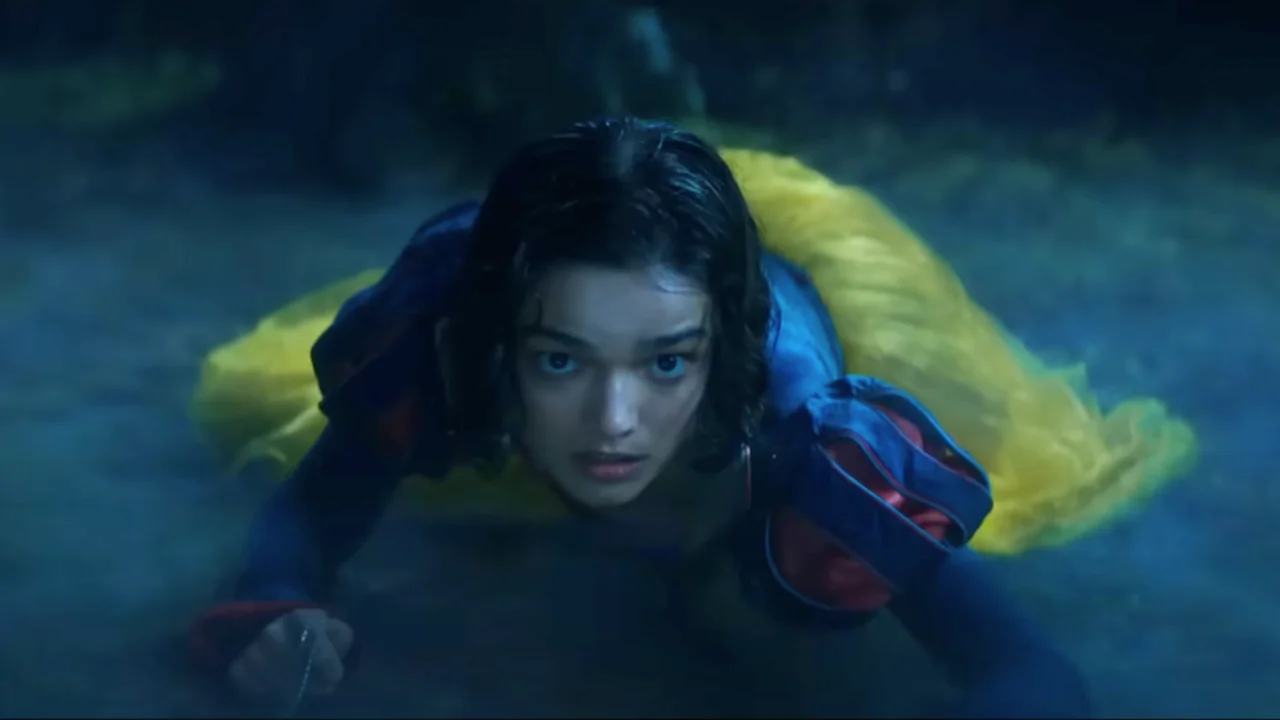
They kept her actions private by assigning her a confidential aide, without revealing it publicly. They let her preserve her good name in the public eye while not addressing her conduct directly.
In simpler terms, Gina Carano was let go from The Mandalorian not due to any specific threats, offensive language, or personal attacks, but because she posted a meme. No harsh words or divisive calls were made in this meme, just a simple post. However, Disney and Lucasfilm chose to announce her termination on social media, damaging her reputation significantly by doing so, all over a single meme.
The difference in how Disney handled these two females shows not just a double standard, but rather an intentional corporate system of values, where actions are either accepted or penalized not due to moral principles, but based on their usefulness.
Protecting the Asset, Not the Message
Based on Variety’s report, Disney found it necessary to appoint someone to oversee Zegler’s social media accounts due to her disruptive posts. The post that ultimately went too far – urging Trump supporters never to know peace – was not her first infraction. Previously, she had posted “Free Palestine” in a promotional pose for her PG-rated Disney remake, which led to an intense backlash. As a result, Disney felt compelled to provide security for Zegler’s co-star, Gal Gadot, who became a target due to this controversial post.
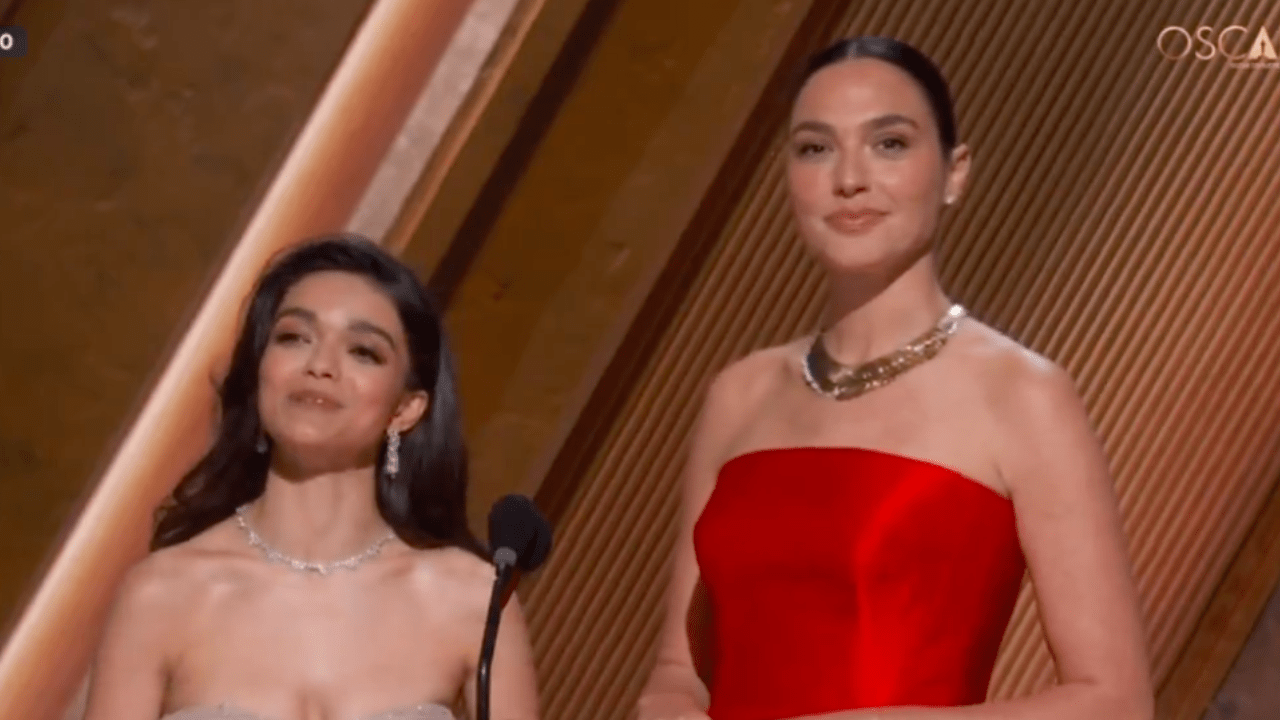
At some point, it’s said that producer Marc Platt traveled across the nation to ask Zegler to remove the post, but she declined.
Despite this, she managed to keep her position. She was showcased globally in carefully crafted promotional videos. Her image was protected, polished, and controlled.
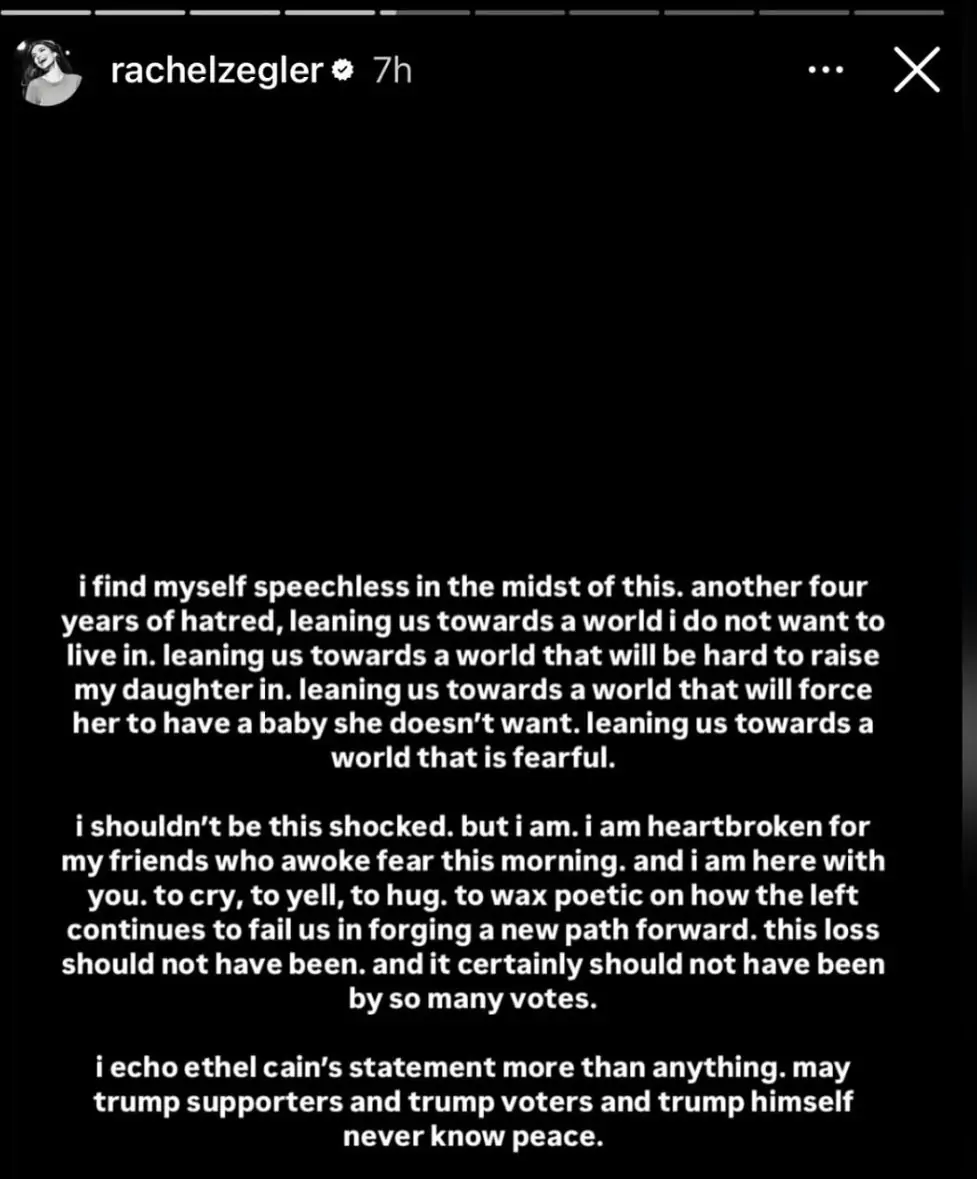
Now we understand why her sudden apology seemed so mechanically scripted. At that moment, numerous individuals observed the disparity in grammar, tone, and style—it was polished corporate talk, far from her authentic voice. This is because it wasn’t. It was a carefully crafted crisis management strategy, penned by the professionals Disney had employed to manage her Instagram account.
This wasn’t a genuine apology; it felt more like a prepared statement. Frankly, we were taken aback thinking that she might have been the one to press “Send.
Prior to this, it was said that Zegler had allegedly thrown a tantrum due to not receiving an Oscar invitation. Additionally, she had openly criticized the original “Snow White” multiple times, which some fans perceived as disrespecting the legacy of Walt Disney.
Meanwhile, Gina Carano Faced a Firing Squad
In a different post, Gina Carano opted to share a meme that prompted her followers to consider historical instances of societal scapegoating. Her message was devoid of hostility, profanity, or incitement for violence or discord. This action followed her decision not to include specific pronouns in her Twitter profile and instead added “beep/bop/boop” as a response to the intense backlash she received over this seemingly minor standpoint. Carano never belittled or even criticized anyone’s way of life; she merely chose not to engage.

Furthermore, a large-scale effort aimed at harassment was initiated against her, with popular figures from Disney such as Leslye Headland and, indeed, Rachel Zegler taking the lead in this unfortunate incident.
Disney proposed a virtual discussion with Carano, where she was anticipated to engage with a group of gender activists, intended as a form of education or guidance. This can be likened to being publicly shamed in the town square and pelted with rotten fruit by villagers, but there’s no evidence that Disney ever suggested Zegler participate in such embarrassing publicity.
Carano chose not to subject herself to that challenging situation. Subsequently, after posting the mentioned meme, Disney decided to terminate her employment.
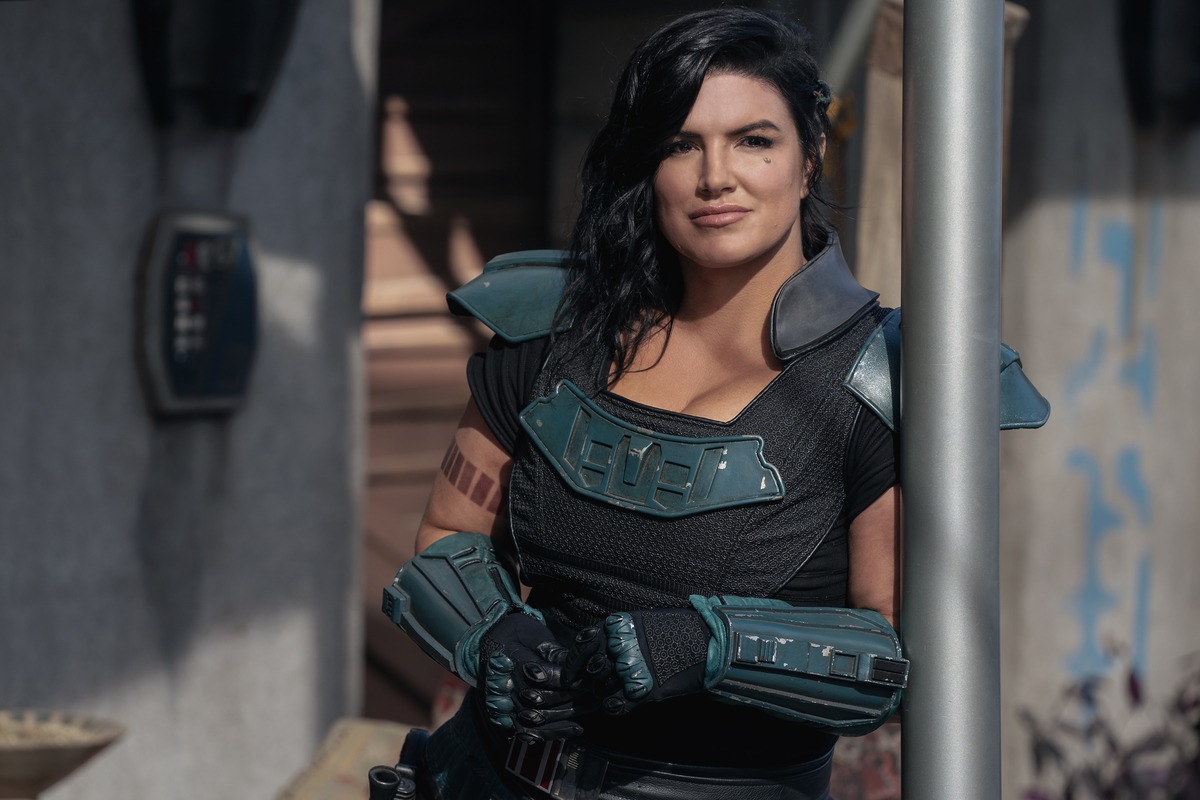
Looking at the sequence of events, it’s evident that Carano’s social media post was only part of the issue. Carano’s political views, which lean to the right, didn’t align with Disney’s progressive values. She refused to conform to Disney’s public image and didn’t yield to their demands. Consequently, Disney chose to make an example out of her. A move that could potentially backfire in a court setting.
The Real Message Behind Disney’s Values
The comparison between Rachel Zegler’s protection and Gina Carano’s punishment suggests a straightforward point: Disney seems to uphold values that are contingent upon specific circumstances or situations.
You might find success, even if your actions stir controversy, provoke strong reactions, or pose risks – provided that you are commercially appealing, supported by influential groups, and ready to comply with the system when necessary.
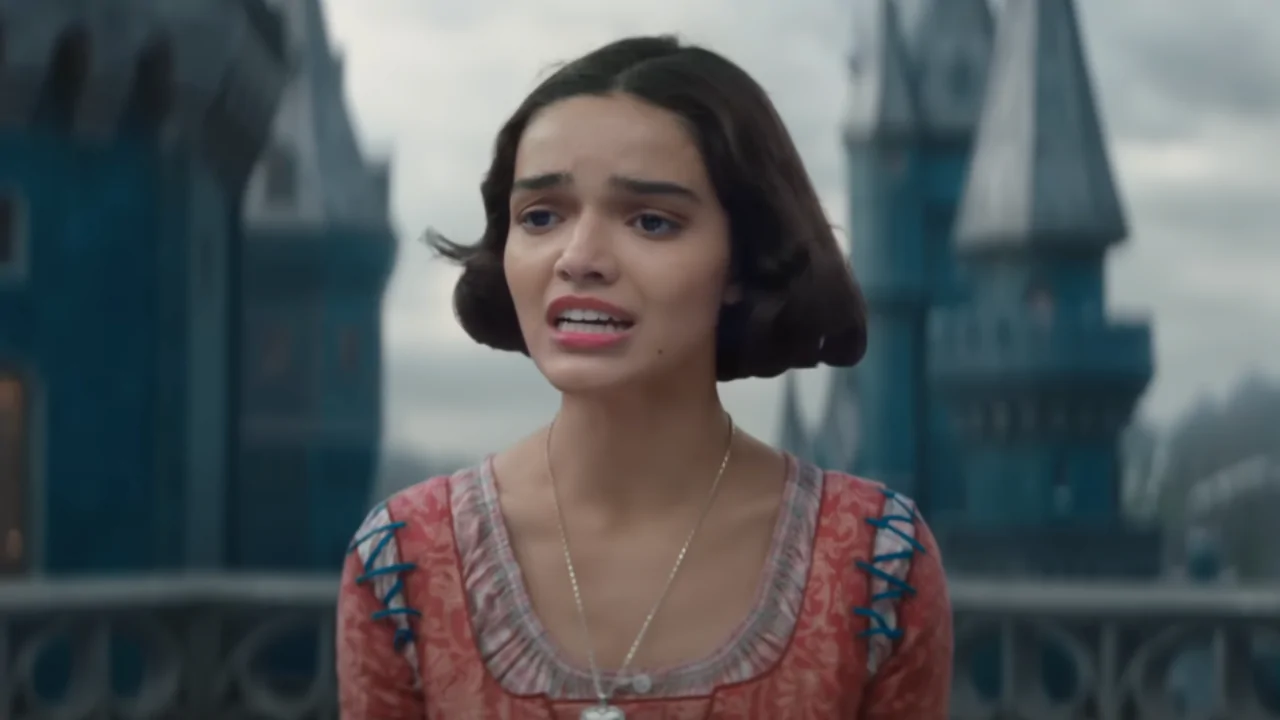
Zegler is a youthful, forward-thinking individual who is closely associated with Disney’s contemporary reimagining. She aligns perfectly with the company image, so they may shield her from potential self-harm, even when her statements inadvertently harm those she collaborates with.
Was Carano known for her boldness, self-reliance, and refusal to follow scripted lines? Then she was perceived as a danger, excluded, and silenced. The irony lies in the fact that Carano truly embodies the strong, autonomous, thoughtful woman that Disney has struggled to portray in its films and series for years. She could have served as a genuine role model for young girls. A tough, uncompromising former fighter who still radiated elegance and femininity.
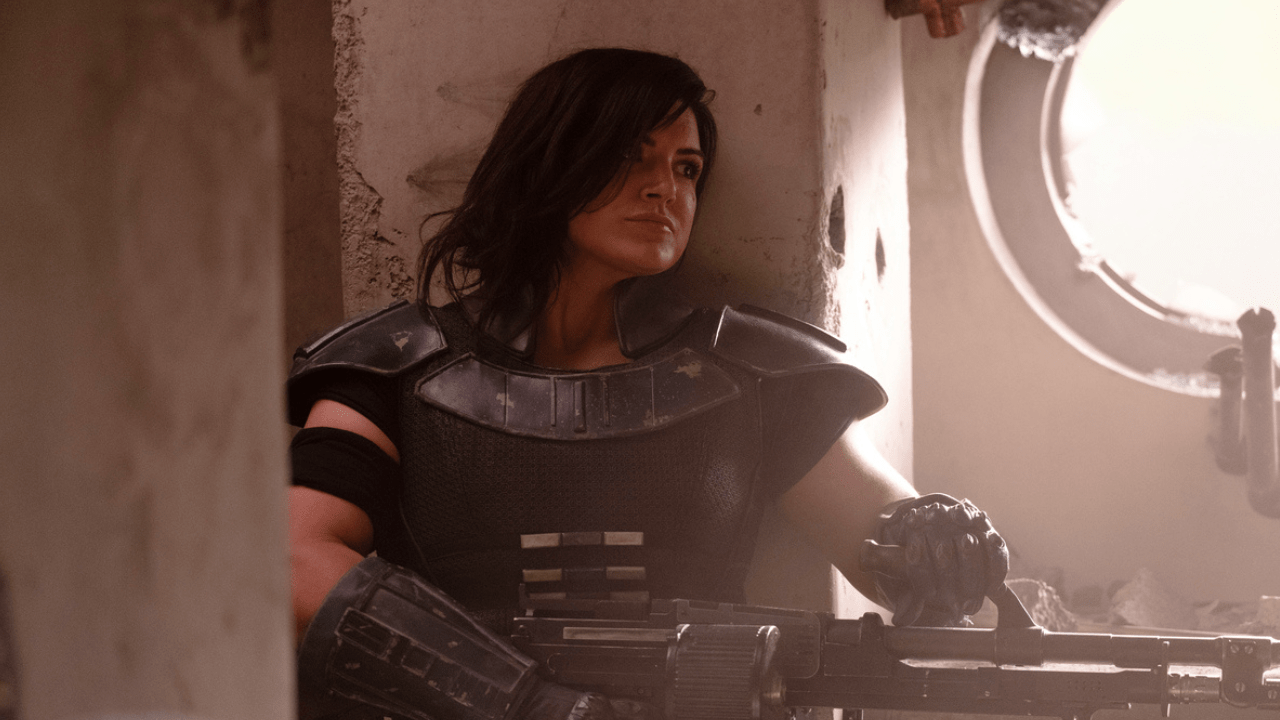
Looking at the Carano and Zegler circumstances, it’s evident that this isn’t a matter of upholding moral principles consistently. Instead, it appears to be more about practicality or effectiveness.
A Future That Hangs in the Balance
Is it likely that Disney will work with Zegler once more, considering the publicity fiasco surrounding the marketing of Snow White? Or might other studios shy away from similar situations in the future?
It’s still uncertain, but they might have figured out their mistake in private. The recent disclosure by Variety about the internal turmoil within Disney indicates a possible attempt to subtly distance themselves following the release. If Zegler doesn’t appear in another Disney film, it could be a deliberate, gradual, and tactical move.

Yet, it’s common for Hollywood to honor vocal advocates of progressive views, even when their films don’t perform well at the box office. Given this pattern, it seems likely that Zegler will secure more significant roles, additional reboot projects, and high-profile campaigns in the future.
For quite some time now, I’ve noticed a recurring trend: amplify those with voices that align with my beliefs, while muffling or silencing those who hold different views.
Instead, Carano continues her battle – this time in a courtroom. Her lawsuit against Disney, financed by Elon Musk, accuses political discrimination and wrongful termination. Thanks to this recent evidence from Variety, it’s not just a claim she has, but a solid case study. The twist here is that Rachel Zegler had previously harassed and vilified Carano, yet her actions could potentially lead to Gina’s triumph over Disney – the Mouse House.
In contrast to me, who was supported by handlers, Carano found herself under the spotlight with headlines. Whereas I was shielded, she faced scrutiny. Instead of being protected, she experienced punishment.

Disney seems to uphold values like kindness, inclusivity, and accountability, but only when it suits them. The broader world, however, is now starting to recognize this trend.
Disney promotes kindness, inclusion, and responsibility, but only in situations that benefit them. More and more people are realizing this pattern.
Read More
2025-03-27 16:56